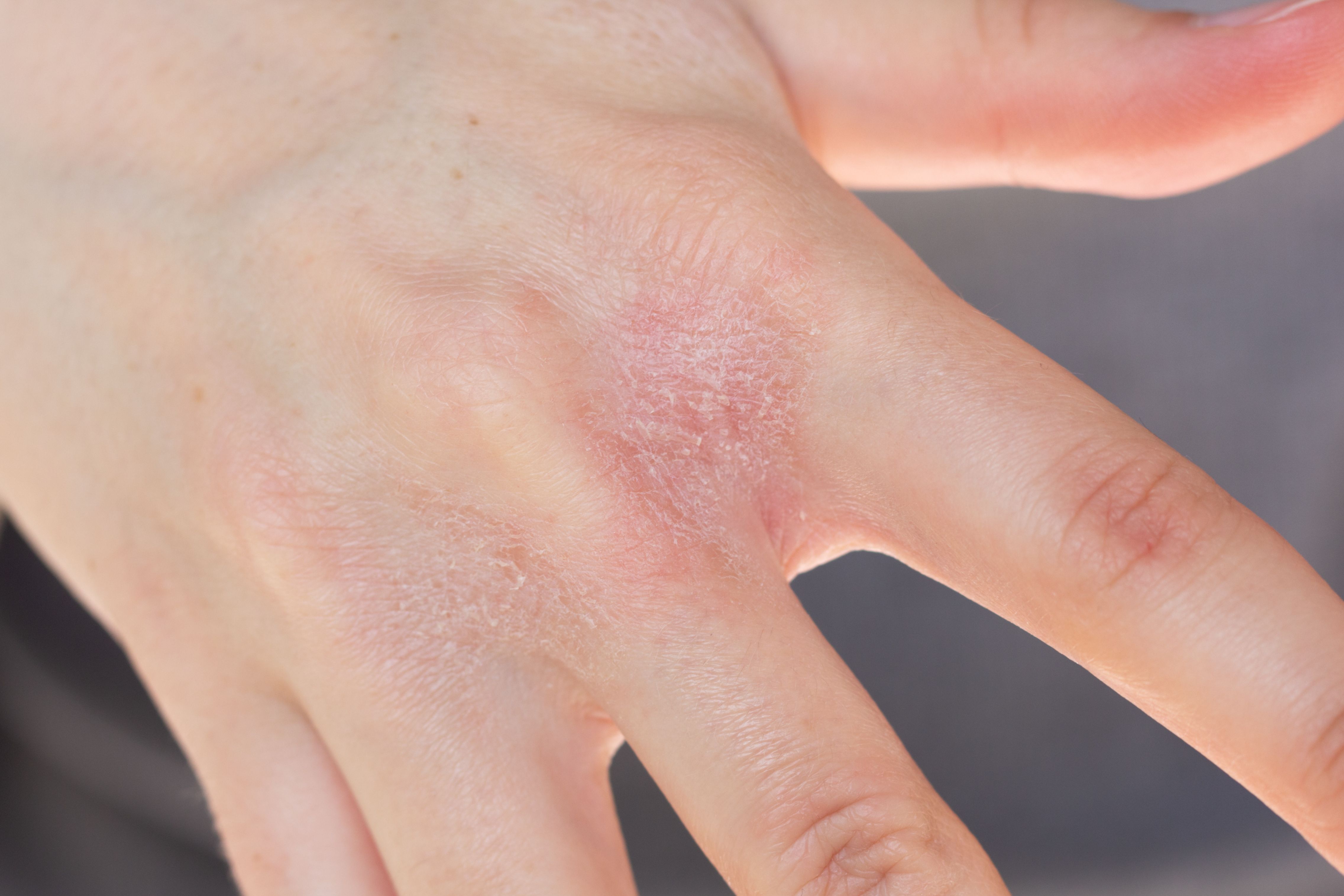- Case-Based Roundtable
- General Dermatology
- Eczema
- Chronic Hand Eczema
- Alopecia
- Aesthetics
- Vitiligo
- COVID-19
- Actinic Keratosis
- Precision Medicine and Biologics
- Rare Disease
- Wound Care
- Rosacea
- Psoriasis
- Psoriatic Arthritis
- Atopic Dermatitis
- Melasma
- NP and PA
- Skin Cancer
- Hidradenitis Suppurativa
- Drug Watch
- Pigmentary Disorders
- Acne
- Pediatric Dermatology
- Practice Management
- Prurigo Nodularis
- Buy-and-Bill
News
Article
Vivian Shi, MD: Creative Approaches to Eczema Care
Author(s):
Key Takeaways
- Non-pharmacologic approaches, such as natural oils and music therapy, complement traditional eczema treatments, enhancing patient well-being.
- Combination therapies, including biologics and JAK inhibitors, show promise in managing severe eczema cases.
Shi addresses one of the NEA's Eczema Awareness Month weekly themes, "Creative ways to manage your eczema."
The National Eczema Association (NEA) is highlighting the lived experience of eczema with weekly themes throughout October as part of Eczema Awareness Month. Each week sheds light on different aspects of the disease.
Dermatology Times recently spoke with Vivian Shi, MD, a professor of dermatology at the University of Washington. Shi directs the clinical trials unit at her department, with a focus on inflammatory skin conditions such as atopic dermatitis and hidradenitis suppurativa.
Shi discussed the NEA's theme: "Creative ways to manage your eczema," providing unconventional alternatives to traditional eczema management and discussing their role on patients’ well-being.
Vivian Shi, MD | Image Credit: © University of Washington

Q&A
Q: What are some creative or unconventional ways you’ve found effective in managing eczema that clinicians may not traditionally consider?
A: I often recommend incorporating non-pharmacologic approaches, like natural oils, massage therapy, and music therapy to complement traditional treatments. Addressing mental health, sleep, and family dynamics, especially in children from split households, is also essential for holistic care. Additionally, practical tools like cooling face masks and pillows, can provide immediate relief by reducing nighttime itching. Black tea compresses have also been effective and shown to have marked improvement in facial dermatitis within just a few days, offering patients a quick relief.
Q: Can you discuss any combination therapies or novel application methods that have proven successful in managing more severe cases of eczema
A: Combining biologics with oral immunosuppressants or JAK inhibitors has shown success in recalcitrant cases. Off label, more frequent biologic dosing or using higher initial doses of oral JAK inhibitors, can help mimic a loading regiment for better initial control.
Q: How do you see the landscape of eczema management evolving in the next few years, especially with advancements in biologic treatments and personalized medicine?
A: The landscape of eczema management is evolving rapidly with a broader array of treatment options. We are seeing an expansion of multi-targeted immunomodulating therapies that address multiple immune pathways rather than just a single target. Given the heterogenous nature of atopic dermatitis, precision medicine will play a larger role and we will be able to design treatment plans tailored to a patient’s unique immune profile.
We’re also setting higher benchmarks for safety and efficacy. Excitingly, both topical and systemic therapies are showing remittive effects – offering long term disease control with less frequent dosing. One of the most significant shifts is that topical treatments are approaching the efficacy of systemic drugs – which is a game-changer. Ultimately, the future of eczema management will be driven by a “treat to target” approach, optimizing both safety and long term-outcomes.
Q: In your experience, how can clinicians engage patients more creatively in their treatment plans to improve adherence and long-term outcomes?
A: Setting realistic goals – from immediate, short term, and long term – is crucial, and these should be adaptable. Treatment plans should also be affordable and accessible, to ensure that patients can stick to them over time.
Q: For patients with particularly stubborn or treatment-resistant eczema, what creative approaches do you suggest to help them manage flare-ups or achieve better skin health?
A: Developing personalized eczema action plans is key for managing stubborn cases, and using tools like the Eczema Wise app (available at www.eczemawise.org) can empower patients to track their symptoms/flare-ups, triggers, and treatments in real time. For patients with resistant eczema, combining these insights with strategies like patch testing for allergens and integrating lifestyle changes, such as stress management can help manage flare-ups more effectively.
Q: How can clinicians better manage eczema in patients with comorbidities like allergies or asthma, which can complicate treatment?
A: Managing eczema in patients with comorbidities like allergies/asthma requires a proactive and collaborative approach. It’s essential for patients to consistently ask about these conditions during follow-ups, as they can significantly impact treatment outcomes. Partnering with specialists from primary care, allergy, ophthalmology, pulmonology, and ENT is key to creating a comprehensive personalized care plan that addresses all aspects of the patient’s health.
Q: Is there anything else you feel is important to share with dermatology clinicians?
A: I just want to stress that recognizing that eczema management extends beyond the skin is key – its crucial to address mental health and psychosocial burden in patients, and this can make a significant difference in treatment outcomes. Also, how patients feel is just as important, if not, more important, than how their skin look.






